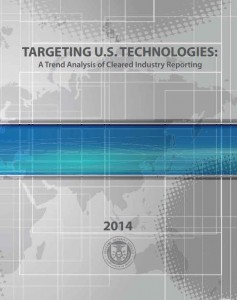Congress: Don’t Blow America’s Energy Boom (National Journal)
Everywhere you look in this farm-town-turned-industrial sprawl, you see signs of an oil boom that hasn’t waited for anybody. Roads are torn up and jammed. Workers are streaming in but can’t find places to live. Water lines of all kinds, including sewer pipes, are in short supply. And so are pipelines to transport the oil and natural gas that is being continually pumped out of the ground.
“It’s morphed so quickly, that whatever mind-set you have going into it, it keeps turning out to be bigger than you thought,” says Tom Rolfstad, economic-development director for Williston, which the Census Bureau has billed as the fastest-growing small city in the country.
This growth, driven by the oil and natural-gas industry, has catapulted oil production in North Dakota from ninth place to second, behind Texas. Production has increased fivefold since 2007 to almost 900,000 barrels of oil a day, thanks to the one-two combo of hydraulic fracturing and horizontal drilling. These technologies have opened up the vast Bakken shale formation that sits miles below this state and parts of Montana and South Dakota. The state’s natural-gas production is also five times higher than it was six years ago. . . . (read more)
The Frackers’ and the Birth of an Energy Boom (New York Times)
One could argue that, except for the Internet, the most important technological advance of the last two decades has been hydraulic fracturing, widely known as fracking. Practically overnight, it seems, this drilling technique has produced so much oil and gas beneath American soil that we are at the brink of something once thought unattainable: true energy independence. And its repercussions, for geopolitics, the environment and other areas, are only now being grasped. . . (read more)
Foreign buyers are getting in on US energy boom (CNBC)
North America’s Unconventional Energy Boom (Forbes/Economist)
FBI: Suspect shot LAX TSA officer before returning, shooting again (USA Today)
Paul Ciancia, the alleged gunman who paralyzed much of Los Angeles International Airport in a Friday shooting spree, could have turned the nation’s third-busiest airport into a massive killing zone had it not been for the quick response by airport police, officials said Saturday.
In a criminal complaint, U.S. District Attorney Andre Birotte charged Ciancia, 23, with murdering a federal officer and a separate charge of committing violence at an international airport. An affidavit said Ciancia — who could face the death penalty — fired a .223-caliber assault rifle at point-blank range, killing Transportation Security Agency officer Gerardo Hernandez, wounding two other TSA officers and two civilians.
FBI Special Agent David Bowdich officials said Ciancia walked away from Hernandez after shooting him in a pre-screening area at the airport, then went up an escalator in Terminal 3 before returning and shooting again. . . .(read more)
Snowden is said to have tricked NSA co-workers into giving him their passwords (Washington Post)
Former National Security Agency contractor Edward Snowden used log-in credentials and passwords provided unwittingly by colleagues at a base in Hawaii to access some of the classified material he leaked to the media, sources said.
A handful of agency employees who gave their log-in details to Snowden were identified, questioned and removed from their assignments, said a person close to several federal investigations into damage caused by the leaks. . . (read more)
Senior Navy civilians investigated in alleged scheme to defraud military for $1.6 million (Washington Post)
Federal authorities are investigating three senior Navy intelligence officials as part of a probe into an alleged contracting scheme that charged the military $1.6 million for homemade firearm silencers that cost only $8,000 to manufacture, court records show.
The three civilian officials, who oversee highly classified programs, arranged for a hot-rod auto mechanic in California to build a specially ordered batch of unmarked and untraceable rifle silencers and sell them to the Navy at more than 200 times what they cost to manufacture, according to court documents filed by federal prosecutors. . . .(read more)
Two admirals face probe in Navy bribery scheme (Washington Post)
Two U.S. admirals — including the director of naval intelligence — are under investigation as part of a major bribery scandal involving a foreign defense contractor, Navy officials announced Friday night.
Vice Adm. Ted “Twig” Branch, the service’s top intelligence officer, and Rear Adm. Bruce F. Loveless, the Navy’s director of intelligence operations, were placed on leave Friday, and their access to classified material was suspended, the Navy said in a statement.
Both admirals are being investigated for their ties to a Singapore-based defense contractor, Glenn Defense Marine Asia, whose chief executive was arrested in September on charges that he bribed other Navy officers into giving him classified or privileged information in exchange for prostitutes and cash.
Two Navy commanders and a senior Naval Criminal Investigative Service agent have already been arrested, and a captain was relieved of his ship’s command last month in connection with the case. . . . (read more)
Exclusive: U.S. Foreign Aid Group May Ignore Its Own Rules and Give Cash to Corrupt Regimes (Foreign Policy)
A U.S. government-funded foreign aid organization is considering sending hundreds of millions of dollars in grants to countries whose flawed, corrupt or undemocratic governments should almost certainly be ineligible for the money according to the agency’s own internal guidelines.
The Millennium Challenge Corporation, or MCC, is an independent U.S. foreign aid agency dedicated to “advancing American values” by reducing poverty, advancing good governance, and weeding out corruption.
But people familiar with the matter say that the MCC — led by Colorado banker Daniel Yohannes — is seriously contemplating giving money to Sierra Leone and Benin, which fail to meet its “control of corruption” requirements, and Liberia and Morocco, which meet less than half of the organization’s 20 requirements for civil liberties, sound economic policies, and other measures.
If approved, each country could receive hundreds of millions of dollars of U.S. government funding over the next few years. . . (read more)
‘Bully Pulpit,’ Doris Kearns Goodwin’s Book on Roosevelt (New York Times)
. . . . “The Bully Pulpit” points up the many parallels (and crucial differences) between the Progressive era at the turn of the 20th century and the country today: a squeezed middle class; growing gaps between rich and poor; an escalating debate over the role that the federal government should play through regulation, taxation and legislation; public frustration with a “do nothing Congress”; questions about White House leadership; and an often poisonous schism within the Republican Party. . . . (read more)
The Bully Pulpit: Theodore Roosevelt, William Howard Taft, and the Golden Age of Journalism (Barnes & Noble)
The gap between rich and poor has never been wider . . . legislative stalemate paralyzes the country . . . corporations resist federal regulations . . . spectacular mergers produce giant companies . . . the influence of money in politics deepens . . . bombs explode in crowded streets . . . small wars proliferate far from our shores . . . a dizzying array of inventions speeds the pace of daily life.
These unnervingly familiar headlines serve as the backdrop for Doris Kearns Goodwin’s highly anticipated The Bully Pulpit—a dynamic history of the first decade of the Progressive era, that tumultuous time when the nation was coming unseamed and reform was in the air.
The story is told through the intense friendship of Theodore Roosevelt and William Howard Taft—a close relationship that strengthens both men before it ruptures in 1912, when they engage in a brutal fight for the presidential nomination that divides their wives, their children, and their closest friends, while crippling the progressive wing of the Republican Party, causing Democrat Woodrow Wilson to be elected, and changing the country’s history. . . .
Buy American:










